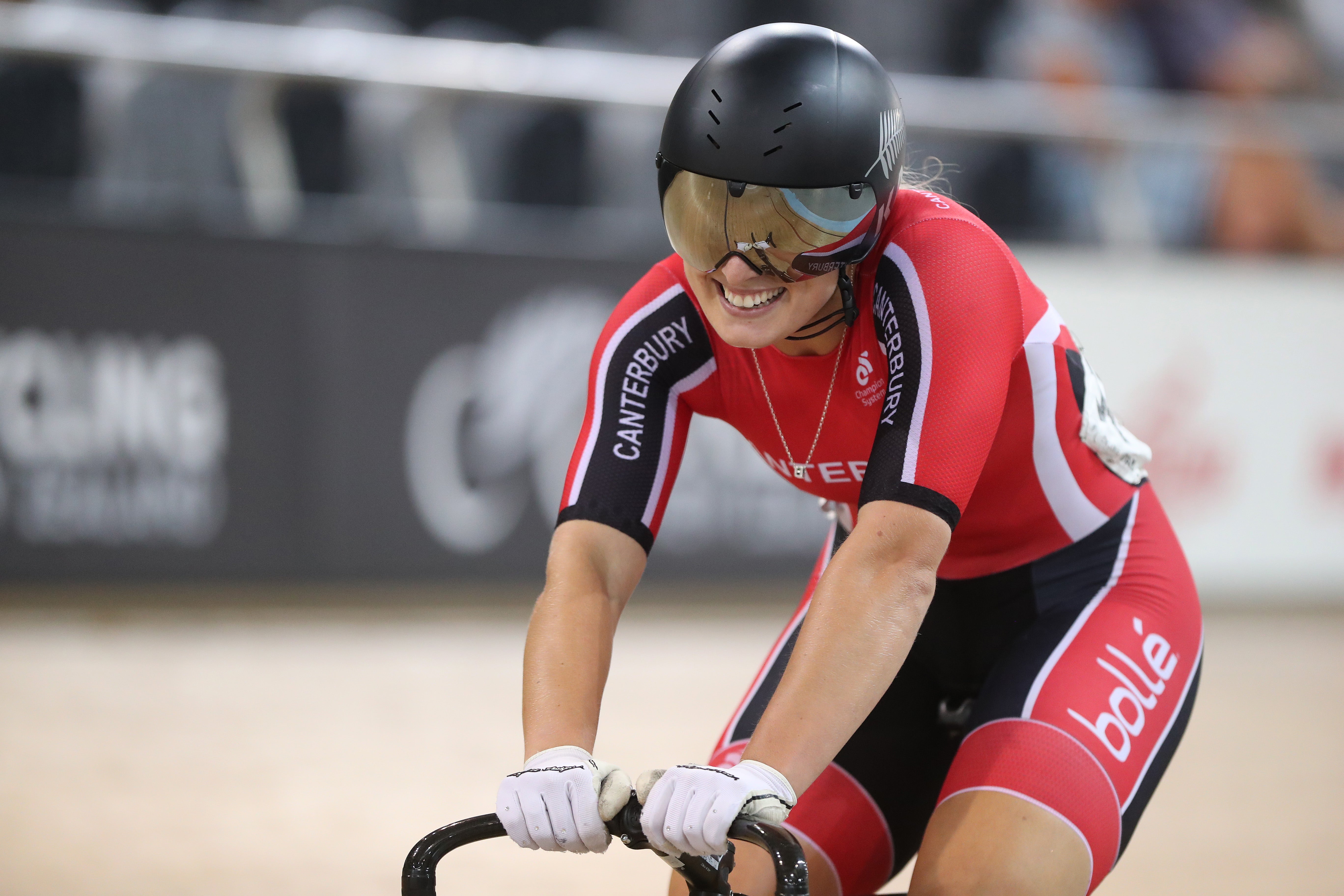Former Olympic cyclist, 24, dies suddenly hours after Instagram post about the pressures of competing
Her last post was about feeling ‘injured’ for not being selected for Tokyo Games despite qualifying

Your support helps us to tell the story
From reproductive rights to climate change to Big Tech, The Independent is on the ground when the story is developing. Whether it's investigating the financials of Elon Musk's pro-Trump PAC or producing our latest documentary, 'The A Word', which shines a light on the American women fighting for reproductive rights, we know how important it is to parse out the facts from the messaging.
At such a critical moment in US history, we need reporters on the ground. Your donation allows us to keep sending journalists to speak to both sides of the story.
The Independent is trusted by Americans across the entire political spectrum. And unlike many other quality news outlets, we choose not to lock Americans out of our reporting and analysis with paywalls. We believe quality journalism should be available to everyone, paid for by those who can afford it.
Your support makes all the difference.New Zealand’s 2016 Olympic cyclist Olivia Podmore was found dead on Monday, hours after she posted on Instagram about the pressures of competing.
Podmore represented New Zealand in the 2016 Olympic Games in Rio, 2018 Commonwealth Games, and competed in the world championships last year.
Her brother Mitchell Podmore confirmed her death in a Facebook post: “Rest in peace to my gorgeous sister and loved daughter of Phil Podmore. You will be in our hearts forever.”
The cause of Podmore’s death has not been disclosed yet.
A Waikato police spokesperson said cops responded to a call of sudden death in Cambridge on Monday evening.
"Police are making enquiries in relation to the death on behalf of the coroner," the spokesperson said. "The coroner will release their finding in due course."
The death of the athlete has shocked the cycling and Olympic communities in the country, prompting a debate on mental health issues in sports, which was also highlighted by American gymnast Simone Biles and tennis star Naomi Osaka during the Tokyo Games.
Podmore was not part of the Tokyo Olympics but her post appeared on Monday, a day after the Games concluded.
“Sport is an amazing outlet for so many people, it’s a struggle, it’s a fight but it’s so joyous,” she said, sharing her grinning picture in a since-deleted post.

“The feeling when you win is unlike any other, but the feeling when you lose, when you don’t get selected even when you qualify, when your injured, when you don’t meet society’s expectations such a owning a house, marriage, kids all because [you’re] trying to give everything to your sport is also unlike any other,” she wrote.
According to Stuff, Podmore qualified for the Tokyo Olympic Games but she was not selected in the team.
The New Zealand Olympic Committee (NZOC) and Cycling New Zealand both issued statements saying they were saddened by her death and offered condolences to the family.
"We offer our deepest condolences to family, friends and others in the NZ community who are grieving this loss," the NZOC said. "She was a valued team member and her loss will be felt across the New Zealand Sporting Community."
Cycling New Zealand said the staff and riders were “deeply saddened with the loss of one of our young cyclists. Olivia was a much loved and respected rider in our Cycling New Zealand squad.”
Olympic rower Eric Murray, a close friend of the cyclist, fought back tears as he addressed a media conference, saying that she showed no signs that she was struggling with mental health when he met her on the day she died.
“I was with her this time yesterday and I wish she had said something,” Murray said. “Her death is a shock and a tragedy.”
He gave examples of Biles, who withdrew from most of the events during the Tokyo Olympics to focus on her mental health and Osaka, who pulled out of the French Open over post-match media duties that affected her mental health.
“We’re seeing locally and around the world the implications of mental health in sport,” Murray said.
After her death, Sport NZ CEO Raelene Castle confirmed that Podmore reached out for help, reported Nzherald.
"What I will say is that mental health is incredibly challenging," Ms Castle said.
"I really wish that we could have a black and white and wrong and right answer for it but it’s not like that, even when you put the best level of support around that athlete with an open door into psychological services, and offer all those opportunities. Sometimes they reach out. Olivia had been reaching out into those environments. Why are we here? That’s the question we all want the answer to," she said.
If you are experiencing feelings of distress and isolation, or are struggling to cope, The Samaritans offers support; you can speak to someone for free over the phone, in confidence, on 116 123 (UK and ROI), email jo@samaritans.org, or visit the Samaritans website to find details of your nearest branch.If you are based in the USA, and you or someone you know needs mental health assistance right now, call National Suicide Prevention Helpline on 1-800-273-TALK (8255). The Helpline is a free, confidential crisis hotline that is available to everyone 24 hours a day, seven days a week. If you are in another country, you can go to www.befrienders.org to find a helpline near you.
Join our commenting forum
Join thought-provoking conversations, follow other Independent readers and see their replies
Comments